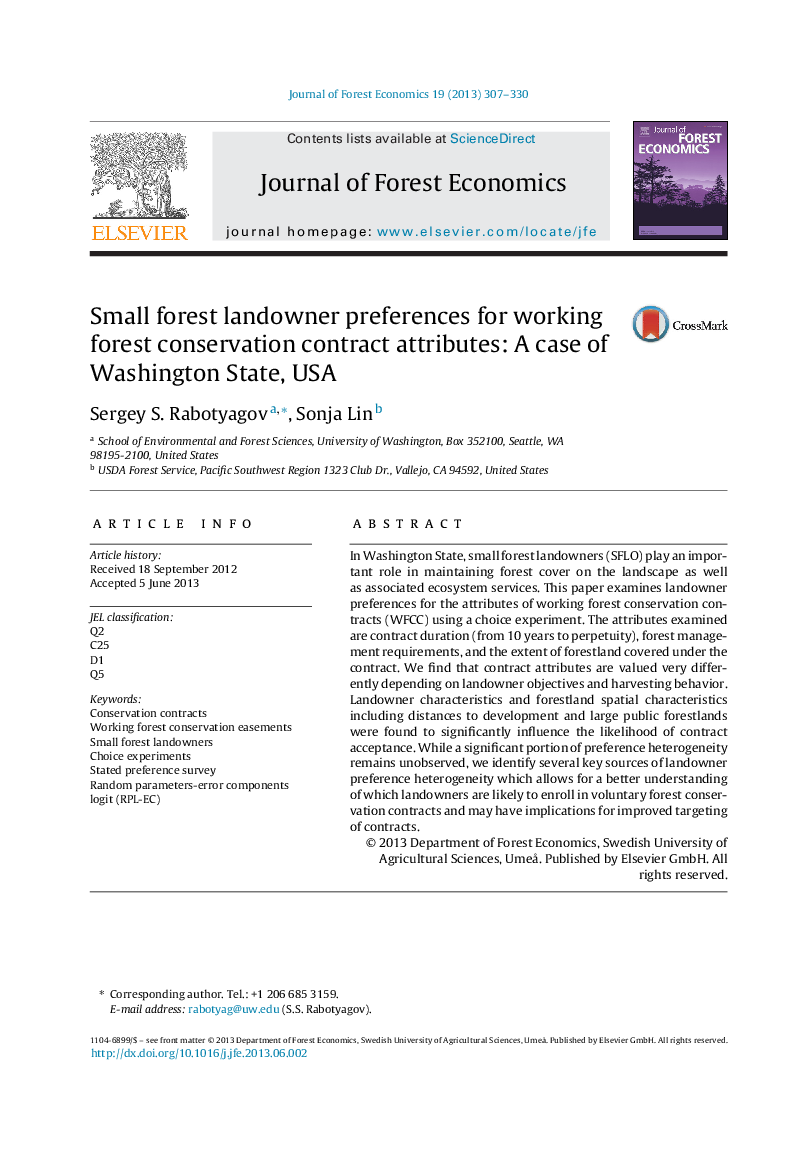| Article ID | Journal | Published Year | Pages | File Type |
|---|---|---|---|---|
| 92046 | Journal of Forest Economics | 2013 | 24 Pages |
In Washington State, small forest landowners (SFLO) play an important role in maintaining forest cover on the landscape as well as associated ecosystem services. This paper examines landowner preferences for the attributes of working forest conservation contracts (WFCC) using a choice experiment. The attributes examined are contract duration (from 10 years to perpetuity), forest management requirements, and the extent of forestland covered under the contract. We find that contract attributes are valued very differently depending on landowner objectives and harvesting behavior. Landowner characteristics and forestland spatial characteristics including distances to development and large public forestlands were found to significantly influence the likelihood of contract acceptance. While a significant portion of preference heterogeneity remains unobserved, we identify several key sources of landowner preference heterogeneity which allows for a better understanding of which landowners are likely to enroll in voluntary forest conservation contracts and may have implications for improved targeting of contracts.
